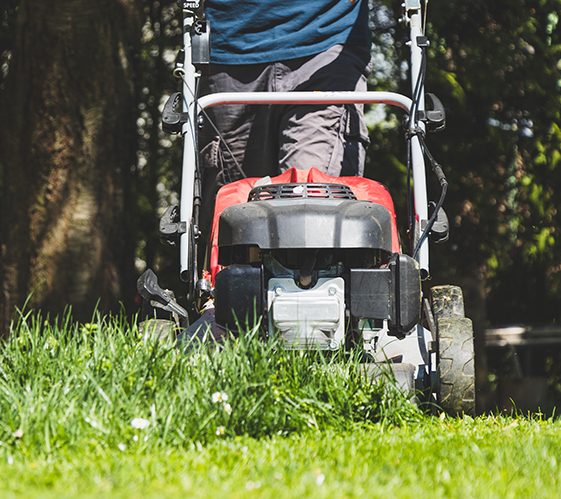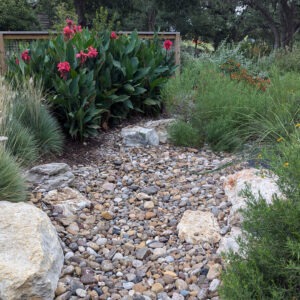Fertilizers and pesticides can be washed away by rainwater to nearby creeks and rivers. You can help prevent this kind of pollution with a few simple solutions — and you’ll even save water!
Though they haven’t ended the record drought, recent rains have been a welcome respite. But with significant rainfall, litter from all over the city collects in huge piles near bridges and trees — and foam and plastic aren’t the only pollutants storm waters carry.
Chemicals like fertilizers and pesticides applied to lawns are water soluble and often washed away by rainwater to nearby creeks and rivers where they pollute the local environment. Like litter, this kind of pollution is largely preventable. And, the solutions can even help you save water.

The first and simplest way is to apply fewer substances to your lawn. Fertilizer is only necessary to replace nutrients (particularly nitrogen) that are lost throughout the year. Leaving grass clippings on the lawn to naturally decompose is one easy way to reduce nutrient loss. Using compost to restore lost organic matter is a more sustainable way to replenish your soil as well. Also, allowing more species to coexist with your turf grass will reduce your dependence on herbicides.
 Landscape changes like building a bioswale or rain garden can help reduce water runoff, capture excess nutrients and reduce your water bill by limiting turf. If you’ve ever used a rain barrel to catch rain, a rain garden is a similar concept, except it stores water in the soil where plants need it! Depending on the size, a rain garden and the surrounding soil can store much more water without any work from you. (Many plants available through the Watersaver Landscape Coupon are suitable for use in a rain garden.)
Landscape changes like building a bioswale or rain garden can help reduce water runoff, capture excess nutrients and reduce your water bill by limiting turf. If you’ve ever used a rain barrel to catch rain, a rain garden is a similar concept, except it stores water in the soil where plants need it! Depending on the size, a rain garden and the surrounding soil can store much more water without any work from you. (Many plants available through the Watersaver Landscape Coupon are suitable for use in a rain garden.)
Water pollution is a large-scale problem that affects us all. But just like a personal decision not to litter adds up, small landscape changes also add up over an entire city. Even farmers are encouraged to plant buffer strips of native plants along the edges of their fields to capture nutrient runoff.
Become part of a national movement to protect water quality and at the same time beautify your little corner of the environment.


